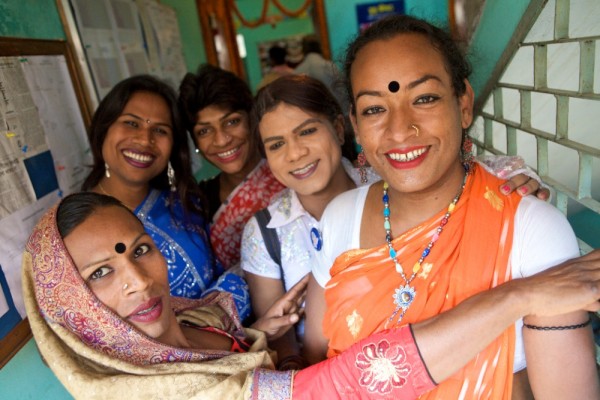The gender of hijras:
A conversation with Baddrudin Khan
by Stephen O. Murray
This impromptu interview was conducted on 16 August 1993.

En route to Karachi Badruddin, I asked Baddrudin Khan about the Pakistani view of hijra, the natal males who wear women’s clothes, haunt weddings for contributions, and sometimes are castrated. This an an excerpt from that conversation.
Are they men?
Yes.
Do they want to be women?
No. No one wants to be a woman in South Asia.
Are they hijra so that they can find male sexual partners?
No. You can’t assume that they all want to get fucked.
There are hijra tops?
Yes. Just as some male transvestites prostitutes in the west are paid to penetrate some of their customers. [This is distinct from “pegging.”]
The article from Newsline you gave me is entitled “Neither Man nor Woman.” If they aren’t a third sex, are they no sex—a “zeroeth” sex?
No. They are men, but failed men. I think that Pakistanis think that they have opted out of male competition to dominate. Not just hijras, but anyone who does not produce children isn’t taken seriously as a full adult man or woman in Pakistan.
Do you think that escaping the burdens of fathering children and competing with other men is what motivates some men to become hijra?
No. I think this is the general Pakistani view, though.
…
Khan also said that there is considerable traffic between Oman and Pakistan. The Sultan of Oman has a castle in Karachi although “the cultures are very distinct.” And, although Omanis are rich these days, they are looked down on (as are all Arabs) as being uncivilized (though Sohar and Muscat have been urban trading centers for more than a millennium, I pointed out).
Zan means womanly (in Urdu?) and may be cognate to xhanith (in Arabic).
Obviously, this is one (gay) man’s view; the canonical book in English on the hijra is Serena Nanda’s Neither Man Nor Woman.
“Badruddin Khan” (a nom de plume) is author of Longing, Not Belonging, and Living in Fear, an expanded update of Sex, Longing, and Not Belonging. I wrote an afterword for the first version of his memoir.

